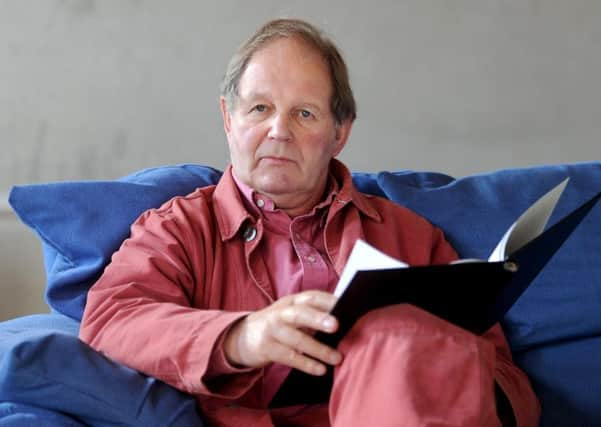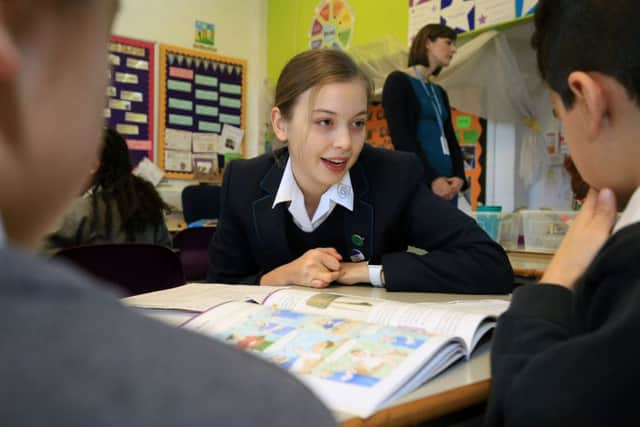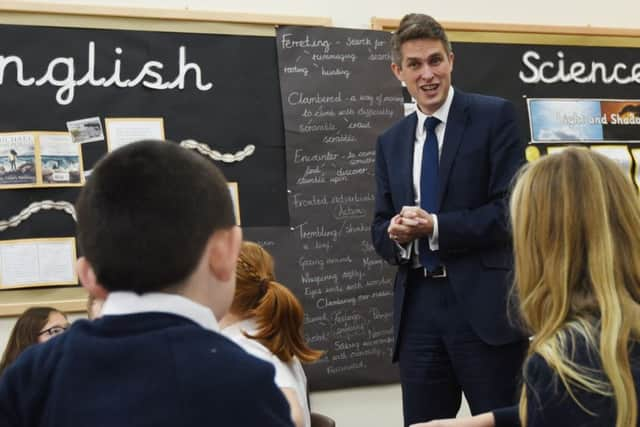Time to teach youngsters that reading is more enjoyable than playing computer games – GP Taylor


Fearful to disappoint, I told a ghost story. An old yarn set in Whitby and the legend of the Barghest, a mythical hound. Five hundred eyes followed my every move, intent on hearing every word as they suspended disbelief. With the final line spoken and the ghost revealed, the audience jumped. A large youth on the front row screamed with frightened glee as laughter filled the room.
Afterwards, many of those listening came up to speak. One asked me if this sort of thing was new. He meant storytelling. In all of his 16 years he had never heard a story. Another complained that when he did try to read a book, (he had read two since the age of 10), he couldn’t visualise the story.


Advertisement
Hide AdAdvertisement
Hide AdHis brain didn’t translate the words into pictures. However, he enthused that the story I had told had played out in his mind like watching a film and he saw everything.
Then another lad admitted that he spent most of his time on the internet watching videos made by ‘influencers’. Teachers had stopped telling stories to him in Year 4. He was one of the first cohort of children to be swallowed up and have their education ruined by successive government policies to test, test and test again.


Advertisement
Hide AdAdvertisement
Hide AdIn so many schools across Britain, I see the same thing. The growing obsession with literacy is destroying the in-built creativity of many children. This linked with force feeding grammar is putting young people off books. They are pressured to learn past participles and subordinate clauses. It is like a mechanic knowing all the parts of a car but not knowing how to make it work.
An unhealthy obsession by most schools about SATS is driving the love of stories and books from the classroom. Teachers I speak to complain that they would love to be able to read to their children, but they just don’t have the time. The school day is too full of work for the test to have any space left for traditional education.
It is a lie to say that teachers are free to structure the day in any way they wish. The demands of the curriculum prevent this. There is too much emphasis made by the Government on measurable outcomes and results. In the long term, pupils suffer.
Many primary pupils would say they are stressed by exams. It is as if the school system places more value on league tables than the welfare of children. An education regime like this breeds failure at a young age.
Advertisement
Hide AdAdvertisement
Hide AdEducation is more than children passing tests. It is about the joy of learning subjects made interesting by teachers who are allowed to teach from the heart. Storytelling plays a major part in this. The best-selling writer Michael Morpurgo is correct when he says there should be story time in schools.
If the Secretary of State for Education, Gavin Williamson, wants to know what he can do to improve schools, I would like to remind him of our days at Raincliffe School in Scarborough. Teachers would read books to pupils in class and, even though it was a tough school, students were motivated to do well in life.
Education should never be about obsessive testing of young pupils. There should be no exams or tests until secondary school. Primary schools should be about the joy of learning where the fundamental needs of a good grounding in English and maths is important. This doesn’t mean forcing children to learn grammatical clauses they will never use in real life. The Government say that “the overarching aim for English in the national curriculum is to promote high standards of language and literacy by equipping pupils with a strong command of the spoken and written language, and to develop their love of literature through widespread reading for enjoyment”.
That would be amazing, if only it were true. The Government wants more children reading and yet closes libraries. It stifles creativity by setting up a culture of testing of pupils and teachers that is totally toxic to true learning. Schools are in danger of becoming soulless exam factories, where the joy of education is being trampled down by formulaic testing. There is no room for teachers to end the day with half an hour of a good book to inspire the imagination.
Advertisement
Hide AdAdvertisement
Hide AdThe battle is on to bring young people back to reading books, rather than spending time on computer games and social media. The burden is back on our education system to inspire and enthuse the love of stories.
GP Taylor is an author and broadcaster from Whitby.